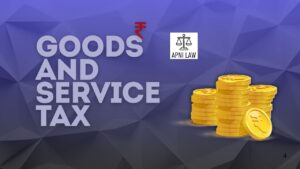Introduction
The Goods and Services Tax (GST) law imposes strict penalties for tax fraud and evasion. Section 132 of GST Act lists various offences and their punishments. These offences include fraudulently claiming input tax credit (ITC), issuing fake invoices, and failing to pay collected taxes.
What Are Some Major GST Offences
A person commits an offence under GST if they supply goods or services without issuing an invoice to evade tax. Issuing invoices without actual supply of goods or services also counts as an offence, especially if it leads to wrongful ITC claims or refunds. If someone uses such fake invoices to claim ITC, or avails ITC without any invoice or bill, it becomes a punishable act. Collecting GST from customers and failing to pay it to the government within three months also attracts punishment.
Other offences include evading tax or fraudulently obtaining refunds that do not fall under the earlier clauses. Producing false financial records or fake documents, or giving incorrect information to avoid paying taxes, is a serious violation. Anyone who knowingly deals with goods that are liable for confiscation, or is involved in the illegal supply or receipt of services, also falls under this section. Attempting or helping someone commit these acts is equally punishable.
What Is The Punishment Based on Offence Severity
The law links punishment to the scale of tax fraud. If the amount of tax evaded or wrongly claimed ITC or refund exceeds ₹500 lakh, the offender may face up to five years in jail and a fine. If the amount lies between ₹200 lakh and ₹500 lakh, the imprisonment may extend up to three years along with a fine. In cases where the amount exceeds ₹100 lakh but does not cross ₹200 lakh, and the offence involves fake invoicing, the law allows for up to one year of jail and a fine. If someone falsifies financial records to evade tax, they may face imprisonment of up to six months or a fine or both.
What Is The Penalty For Repeat Offenders and Minimum Sentence
If a person repeats the offence and gets convicted again, they may face up to five years of imprisonment and a fine for each repeated act. Unless the court provides special reasons, the minimum punishment must include at least six months of jail.
Some GST offences are more serious in nature. If the offence falls under clause (a), (b), (c), or (d) and the evaded amount exceeds ₹500 lakh, it is classified as cognizable and non-bailable. This means police can arrest the person without a warrant, and bail is not a right. All other offences under this section are non-cognizable and bailable.
No person can face prosecution under this section without the prior approval or sanction of the Commissioner. This prevents harassment and ensures only serious violations go to court.
The term “tax” here includes the total tax evaded, the ITC wrongly availed or used, and any refund wrongfully taken. This definition applies to violations under CGST, SGST, IGST, UTGST, and the GST Compensation Cess Act.
Conclusion
Section 132 of the GST Act aims to curb tax fraud with strict penalties. If someone commits fraud, evades tax, or manipulates invoices and records, they can face jail and hefty fines. Every taxpayer must stay honest and comply with GST rules to avoid criminal action.










